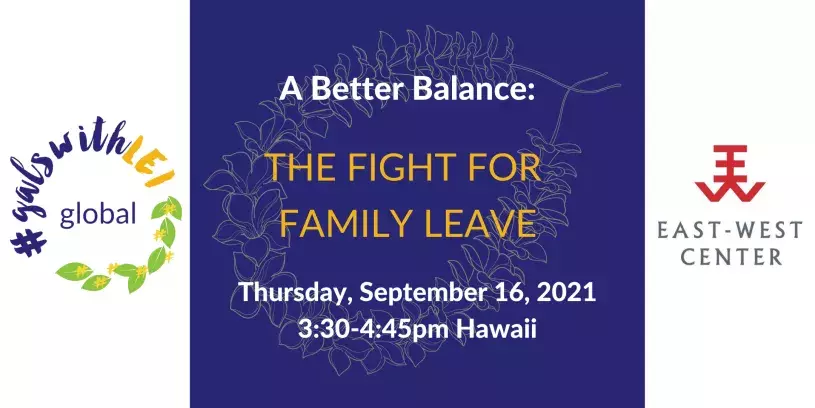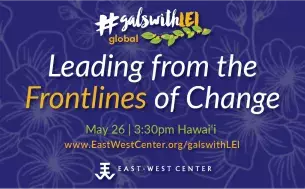Error message

OFFICE/DEPARTMENT
Part of: #GalswithLEI
The resilience of businesses and organizations around the world has been increasingly challenged by the competition for talent and employee retention. Those challenges have been exacerbated by the COVID-19 pandemic, which left millions without a job and exaggerated the competing personal and professional burdens experienced by caregiving employees. In the United States alone, 1 in 5 Americans reported leaving their job due to care obligations, and 1 in 4 women said that they were considering reducing their roles at work or leaving the workforce entirely. In recent years, employers have reported that one of the key differentiators for attracting and retaining employees and ensuring positive employee morale has been workplace flexibility and an equitable and inclusive leave policy. A recent study by the Pew Research Center, for example, found that employees are four times as likely to leave their job if paid leave or flexible work isn’t provided. A common concern amongst opponents of paid family leave is the economic and logistical cost it would impose on employers. Numerous economic studies have shown, however, that the impact on employers is minimal, and a vast majority have reported a positive effect on employee productivity and morale. While these policies have gradually expanded over the past few decades with the private sector taking the lead in the absence of government mandates, the pandemic has brought increased visibility to and amplified the need for family-care benefits. It has also revealed how flexible work policies could change the way we work forever, and for the betterment of women globally.
Hear paid family leave experts and advocates discuss the challenges and inequitable distribution of caregiving, the benefits of paid leave, and why employers and policymakers should embrace policies that allow employees to balance career and family during the pandemic and beyond. Finally, share ideas for advancing paid family leave regionally and across the globe during the optional Open Space discussion.
Panelists:
- Machiko OSAWA, Professor Emeritus, Japan Women's University and Author, Why There Are So Few Women Managers in the Japanese Workplace, Tokyo, Japan
- Sue MORONEY, Former Member of New Zealand Parliament and CEO, Community Law Centres o Aotearoa, Wellington, New Zealand @suemoroney
- Nancy NGOU, Associate Partner, EY Strategy & Consulting Co., Ltd, Tokyo, Japan @Japan_EY
- Cathy BETTS, Director, Department of Human Services, State of Hawaii, Honolulu, Hawaiʻi, USA
Moderator:
- Christina Marie SABLAN, Representative, Northern Marianas Commonwealth Legislature and Changing Faces Seminar alumna, Saipan, Northern Mariana Islands @reptinasablan
Part of: #GalswithLEI
The resilience of businesses and organizations around the world has been increasingly challenged by the competition for talent and employee retention. Those challenges have been exacerbated by the COVID-19 pandemic, which left millions without a job and exaggerated the competing personal and professional burdens experienced by caregiving employees. In the United States alone, 1 in 5 Americans reported leaving their job due to care obligations, and 1 in 4 women said that they were considering reducing their roles at work or leaving the workforce entirely. In recent years, employers have reported that one of the key differentiators for attracting and retaining employees and ensuring positive employee morale has been workplace flexibility and an equitable and inclusive leave policy. A recent study by the Pew Research Center, for example, found that employees are four times as likely to leave their job if paid leave or flexible work isn’t provided. A common concern amongst opponents of paid family leave is the economic and logistical cost it would impose on employers. Numerous economic studies have shown, however, that the impact on employers is minimal, and a vast majority have reported a positive effect on employee productivity and morale. While these policies have gradually expanded over the past few decades with the private sector taking the lead in the absence of government mandates, the pandemic has brought increased visibility to and amplified the need for family-care benefits. It has also revealed how flexible work policies could change the way we work forever, and for the betterment of women globally.
Hear paid family leave experts and advocates discuss the challenges and inequitable distribution of caregiving, the benefits of paid leave, and why employers and policymakers should embrace policies that allow employees to balance career and family during the pandemic and beyond. Finally, share ideas for advancing paid family leave regionally and across the globe during the optional Open Space discussion.
Panelists:
- Machiko OSAWA, Professor Emeritus, Japan Women's University and Author, Why There Are So Few Women Managers in the Japanese Workplace, Tokyo, Japan
- Sue MORONEY, Former Member of New Zealand Parliament and CEO, Community Law Centres o Aotearoa, Wellington, New Zealand @suemoroney
- Nancy NGOU, Associate Partner, EY Strategy & Consulting Co., Ltd, Tokyo, Japan @Japan_EY
- Cathy BETTS, Director, Department of Human Services, State of Hawaii, Honolulu, Hawaiʻi, USA
Moderator:
- Christina Marie SABLAN, Representative, Northern Marianas Commonwealth Legislature and Changing Faces Seminar alumna, Saipan, Northern Mariana Islands @reptinasablan












